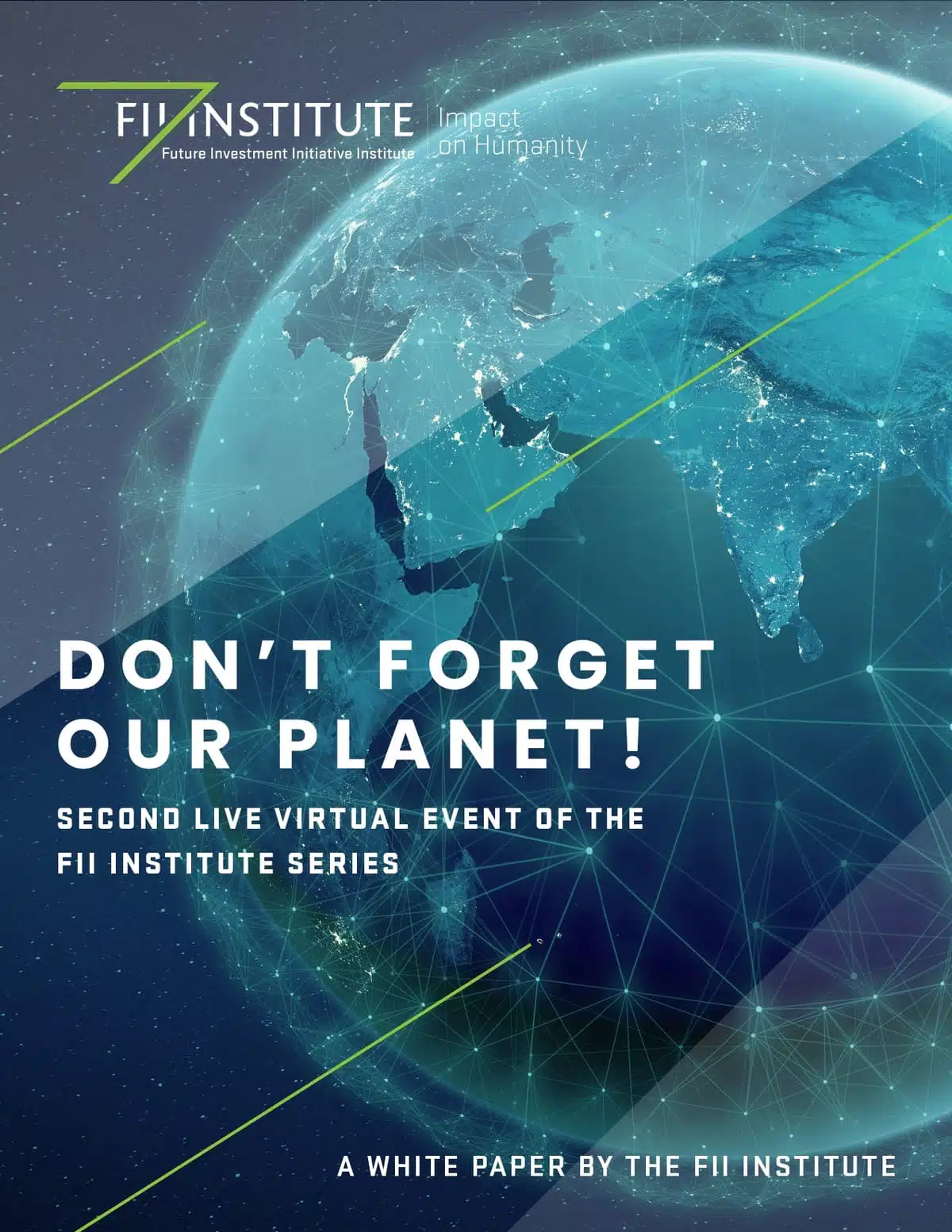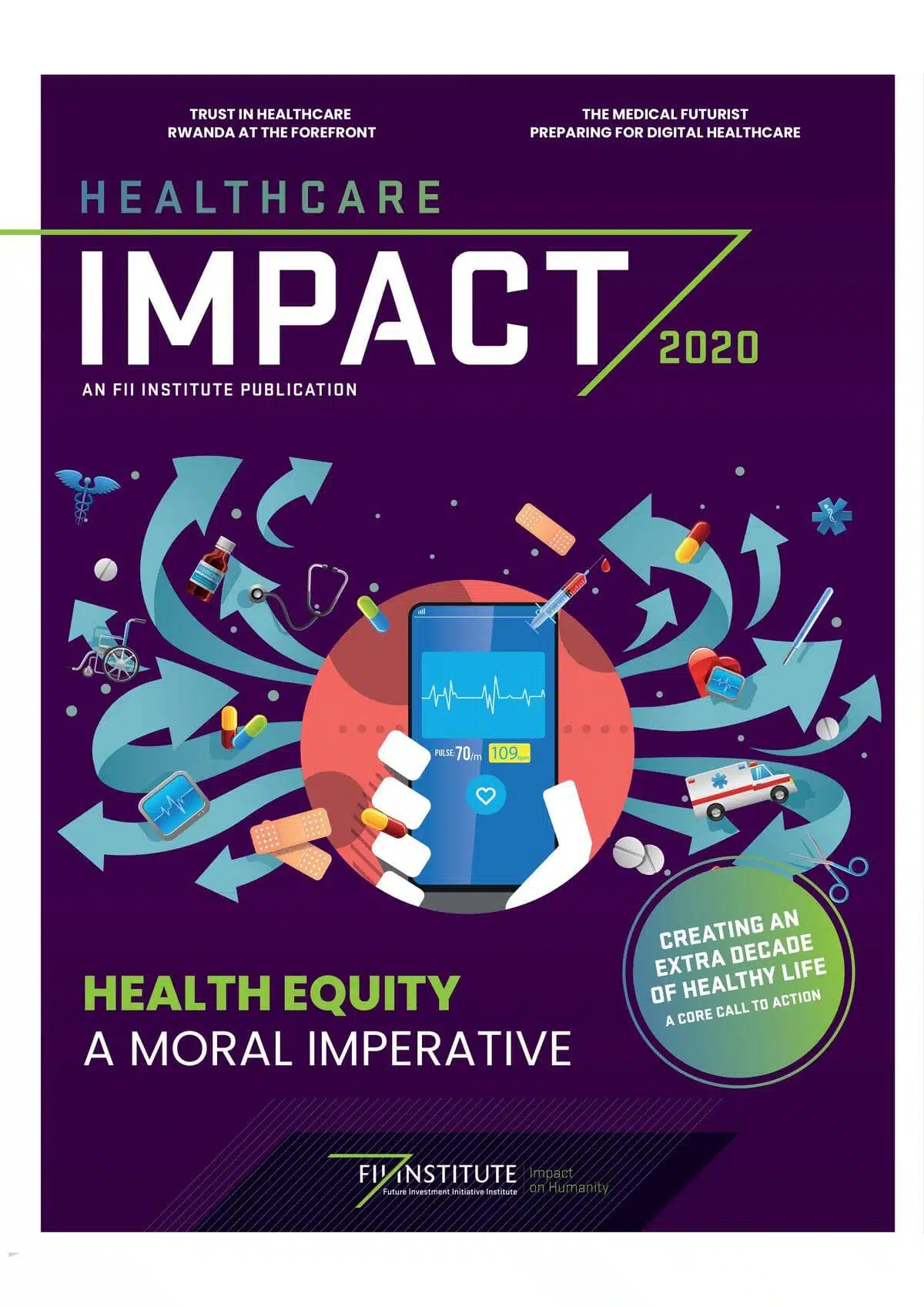We have generated knowledge in unprecedented speed and volume. But we have not become wiser. Worldwide spending on education is nearly $5 trillion per year. But we are still struggling with a learning crisis that leaves millions of children uneducated. We have technologies that allow us to communicate with billions of people in seconds. Yet we communicate less effectively and have become more disconnected than ever before from ourselves and those around us. Vaccines are produced at record speed. The developed countries are moving to a post-Covid world – but only 4 percent of Africa’s 1.3 billion people are fully vaccinated. That is a moral bankruptcy. Where is our common humanity here? We have created the worst increase of inequality in history. Power, profit and wealth are concentrated in the hands of a few. But there is a silver line: This inequality is man-made – and it can be reversed. Our human family is experiencing the greatest test of solidarity in generations. Let us become the generation that can redress our imbalances and deliberately invest in the humanity of every man – and of every woman.
The Future Investment Initiative (FII) Institute for Humanity Award was launched at the 5th Anniversary of FII. Dame Graça Machel, one of the world’s foremost advocates for women’s and children‘s rights, and American singer Gloria Gaynor were named as the first co-recipients of the Institute’s inaugural Award. The annual award will be given each year to two individuals in recognition of their distinguished careers and lifelong track record of commitment to serving humanity. The new award reflects the FII Institute’s own “Impact on Humanity” agenda and how to make a brighter, more sustainable future for humanity. The award’s first recipient opened the “Invest in Humanity” summit in spectacular style by singing her classic song “I Will Survive.” Richard Attias, CEO of FII Institute, presented its inaugural humanity award to her and later to Machel. Attias said the award recognizes outstanding individuals who have made a positive impact on humanity. “We want to celebrate their lifelong contributions and efforts in areas such as promoting women’s and children’s rights, education and development, as well as art and culture.“
Current and former world leaders joined the debates and discussions at the 5th Anniversary of the Future Investment Initiative (FII) this week in Riyadh. Demonstrating the reach of the FII community across the world, political leaders from Africa, Europe, North America and of course the Middle East joined discussions on equality, ingenuity and scalability. His Royal Highness Crown Prince Mohammed bin Salman of Saudi Arabia, and Crown Prince and Prime Minister of Bahrain Salman bin Hamad Al Khalifa, attended a special session on Tuesday to listen to a live interview with His Excellency Kyriakos Mitsotakis, Prime Minister of Greece. In this, Mitsotakis outlined numerous fields for cooperation between Greece (and the EU) and the Gulf region. They included the export of Arabian renewable energy to Europe via Greece, gas prospection in Greek waters assisted by Saudi Arabia, and the further development of the Saudi Arabian tourism industry using Greek know-how.
The global leaders attending FII’s Invest in Humanity event included the current presidents or prime ministers of Nigeria, Gabon, Greece, Bahrain and Armenia, plus former presidents or prime ministers such as Stephen Harper (Canada), Matteo Renzi (Italy) and Kersti Kaljulaid (Estonia). Most of the G20 Group of countries were represented by ministers or secretaries from their respective governments. For the United Kingdom, investment minister Lord Gerry Grimstone argued that governments around the world do not have the resources to deal with climate change. He believes they need to leverage vast amounts of private-sector investment alongside to do that. On the issue of global supply chain disruptions, Don Graves, US Deputy Secretary of Commerce, said: “Predictability, consistency and transparency – that’s really the way we can make sure our supply chains continue to be strengthened. We have to invest in supply chains at home, but also invest in partnerships around the world.” The high esteem of bilateral and multilateral partnerships with Saudi Arabia was also expressed through the strong presence of the diplomatic community, with 40 ambassadors participating in the Invest in Humanity event.
CNN anchor Richard Quest hosted a live board meeting on “Investing for Impact” that included some of the biggest names in global finance: Ana Patricia Botin (Banco Santander), Ray Dalio (Bridgewater), David Solomon (Goldman Sachs), HE Khaldoon Khalifa Al Mubarak (Mubadala), Patrice Motsepe (African Rainbow Minerals), Stephen Schwarzman (Blackstone) and Larry Fink (BlackRock). In a lively debate, board members talked about the vital importance of a collective will to contribute to the climate challenge, as no country can master this on its own, and governments, the private sector and civil society have to combine to do more. “When we bring the private and public sectors together, we can solve many problems, but often we see the public sector trying to do it all,” Larry Fink said. For Ana Botin, Covid-19 showed that there is indeed the necessity of a strong p ublic sector: “Like in a war, in a pandemic it’s the government’s responsibility to take care of its people.“ For the private sector, she sees a different target: “The best way for us to invest in humanity is to take care of our customers and our people. We should have the clear focus to help our customers and all our stakeholders prosper.“ Bridgewater Co-Chairman Ray Dalio is not so sure. “I am a bit confused about capitalism. It has been a remarkable allocation system, but it has failed to provide equal opportunities and to consider the total costs of allocation, for example pollution.” The answer, according to Dalio, “lies in entrepreneurship and technology. Young people come up with great ideas.“ South Africa‘s Patrice Motsepe raised the equality question, especially concerning the 300 million young people in Africa: “They are potentially a demographic dividend, but If we don’t do enough for them, it could turn out to be a demographic time bomb. We feel a sense of urgency that something real has to happen.“ Covid-19 showed that “something real” can indeed happen, as Mubadala CEO Khaldoon Khalifa Al Mubarak noted: “Within less than 12 months we went from the start of the pandemic to the start of vaccination. This was only possible through a collaboration between public and private sector.“ For Al Mubarak, these joint actions are a blueprint for the fight against climate change: “To get to net zero, we will need more than just west or east, north or south – we need all of us.“ Goldman Sachs CEO David Solomon sees the “need to make a balance between short-term results and long-term investments.” And the Big Finance board unanimously tended more to the long-term side of the equation. Blackstone‘s Stephen Schwarzman: “As a private company, we always decided what looked best in the long term. And we didn’t change that after going public.” Santander‘s Ana Botin: “I need to deliver every quarter – but the company has to survive for decades.“ BlackRock‘s Larry Fink: “The best companies are long-term focused. We all have to get along with short-term issues – but that doesn’t make the difference.“ And Mubadala‘s Al Mubarak: “I have the luck to have investors that want us to take patient decisions.” With that amount of investment experience in place, what is the best long-term investment? David Solomon has a simple answer: “Education is the passport to a better life. I propose making teachers the only people in society that don’t pay taxes.“ And what about taxation for the billionaires? We can talk about that, the billionaires said: Ray Dalio “would pay higher taxes if it raises productivity and creates equal opportunities.” Larry Fink agreed: “Same with me.”

